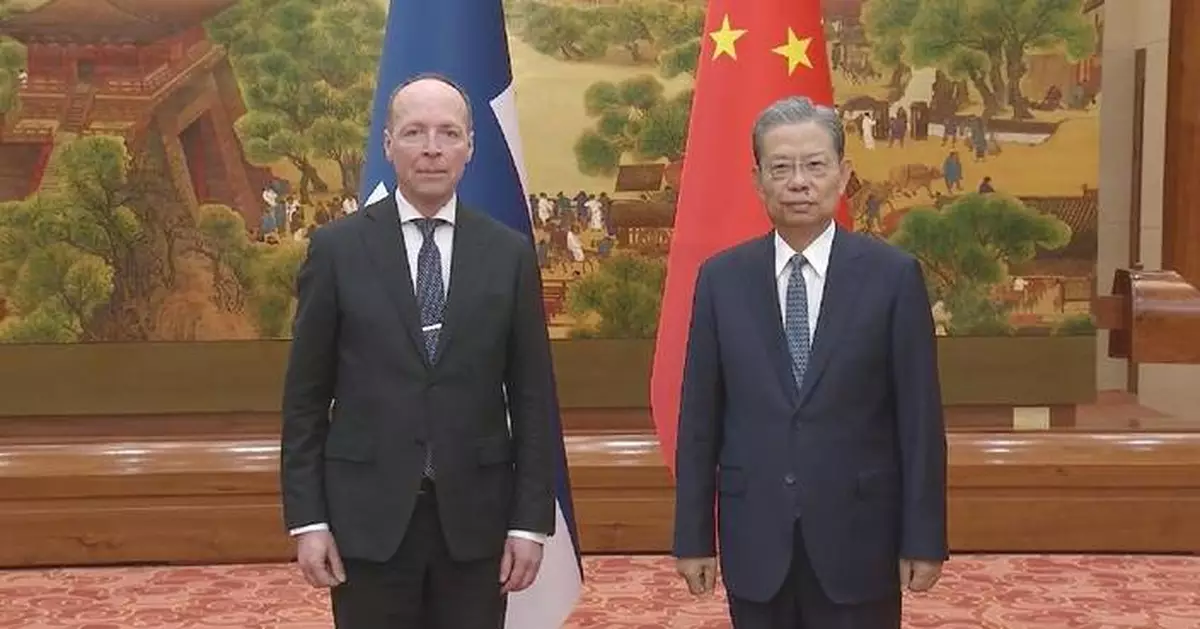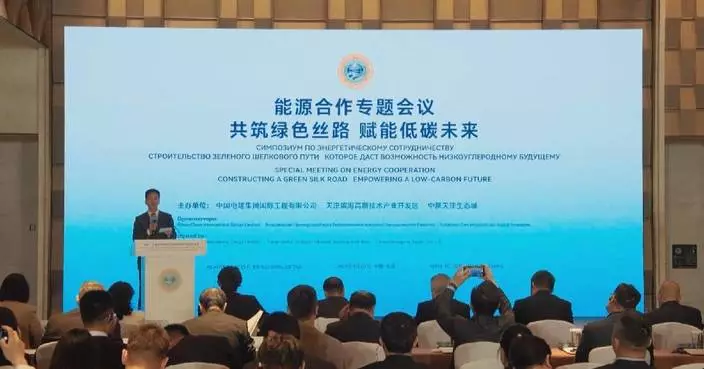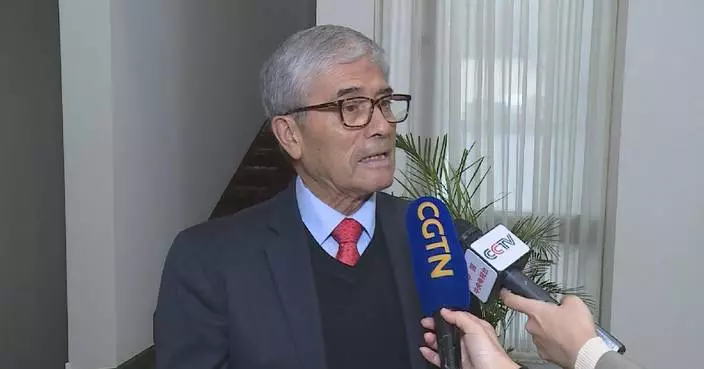Zhao Leji, chairman of the Standing Committee of the National People's Congress (NPC), held talks with speaker of the Finnish parliament Jussi Halla-aho in Beijing on Monday, to discuss relations between their two countries.
Noting this year marks the 75th anniversary of the establishment of diplomatic relations between China and Finland, Zhao said China stands ready to work together with Finland to deliver on the important consensus reached between the top leaders of the two countries, and promote continuous development of the China-Finland future-oriented new-type cooperative partnership.
China is further deepening reform comprehensively and expanding high-standard opening up, which will bring new opportunities for bilateral cooperation, Zhao said, noting China is willing to make joint efforts with Finland to expand win-win cooperation and cement public support for bilateral relations.
China hopes that Finland will continue to play a positive role in boosting mutual promotion and common development of China-Finland relations and of relations between China and the European Union (EU), Zhao said.
Zhao said that the NPC is ready to carry forward the traditional friendship and implement close exchange and cooperation with the Finnish parliament.
As China and Finland each have their own characteristics in national governance and development concepts, the national legislatures of the two countries can learn from each other and play their legislative and supervisory roles to create a sound and stable legal environment for practical cooperation between the two countries, he said.
For his part, Halla-aho said that Finland stays committed to the one-China policy, noting the government of the People's Republic of China is the sole legal government representing the whole of China.
On the basis of mutual respect and trust, Finland is willing to promote practical bilateral cooperation, safeguard free trade and tackle common challenges, said Halla-aho, noting that the Finnish parliament hopes for enhanced exchange with China's NPC, so as to play a positive role in deepening the relations between Finland and China.
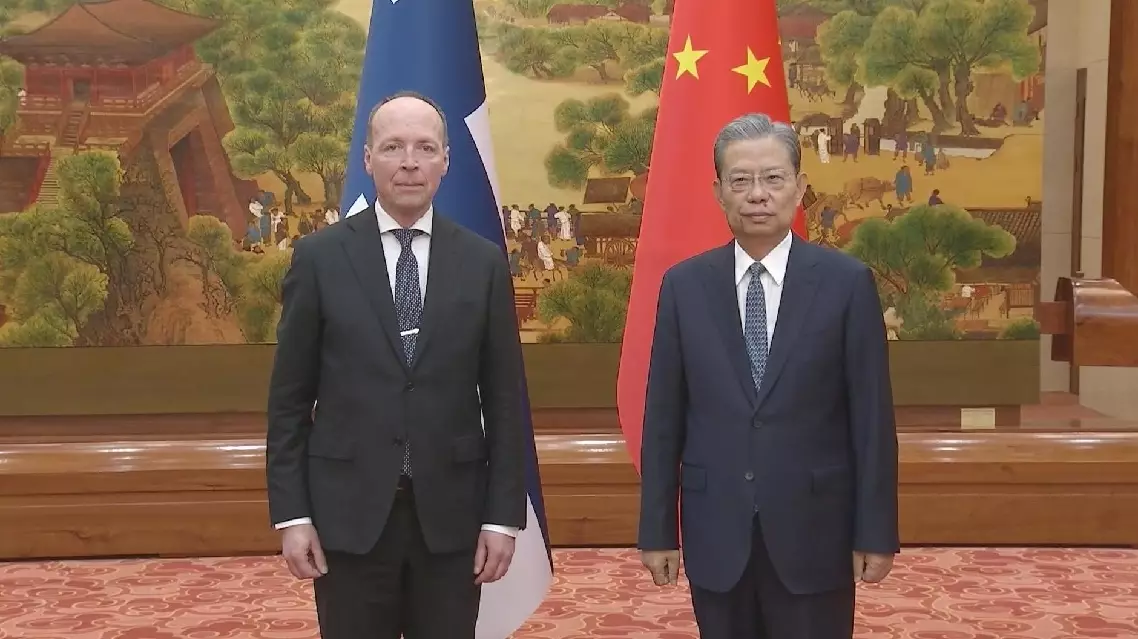
China's top legislator holds talks with Finland's parliament speaker on relations
The universal "reciprocal tariffs" imposed by the United States signals a decline in the U.S. economic dominance and dollar hegemony, as the country is attempting to extract excessive financial benefits from its trading partners, according to economists, who warn the Trump administration is playing a "dangerous game".
U.S. President Donald Trump last week signed an executive order on the so-called "reciprocal tariffs," imposing a 10-percent "minimum baseline tariff" before unveiling higher rates on certain trading partners. The policy sent shockwaves throughout the global economy and triggered panic on financial markets, with analysts warning of significant risks and dire economic consequences.
In an interview with the China Global Television Network (CGTN), Hong Hao, chief economist of the GROW Investment Group, a Shanghai-based hedge fund, said the tariffs reflect Trump's strategy to extract economic benefits from trading partners, particularly viewing China as a significant competitor. "Trump really believes that the trade terms with the trading partners have been unfair to the U.S., and as a result, the U.S. manufacturing sector has been hollowed out. Therefore, the U.S. is paying an excessive price for globalization, and now, it's time to pay back. I think, from this angle, he is trying to extract economic rent from its trading partners, and also he is trying to see China as one of the major U.S. rivals at this juncture. So, I think, as a result, he is playing a very dangerous game. And, as you can see, it's political theater in the sense that he is trying to dramatize the extreme pressure, so that he can get excessive rent from the opponent," he said
Trump's unilateral imposition of tariffs has eroded global confidence in the U.S. and its dollar's status, leading many to state that the American hegemony may not persist, according to Josef Gregory Mahoney, a professor of politics and international relations at East China Normal University.
"The U.S. economy is at an inflection point. There is a moment where the previous strategies being used to sustain American hegemony were no longer working. And, it's only a matter of time before the U.S. position erodes, given the fact that it's been a house of cards built on the dollar supremacy. And a lot of people don't see that as having a brighter future. This has moved past the theater stage and has moved really directly into one in which no one really has confidence in the U.S. anymore. No one has confidence in the dollar. No one has confidence in the U.S. being committed to the multilateral system, to global trade and so forth and so on," he said.
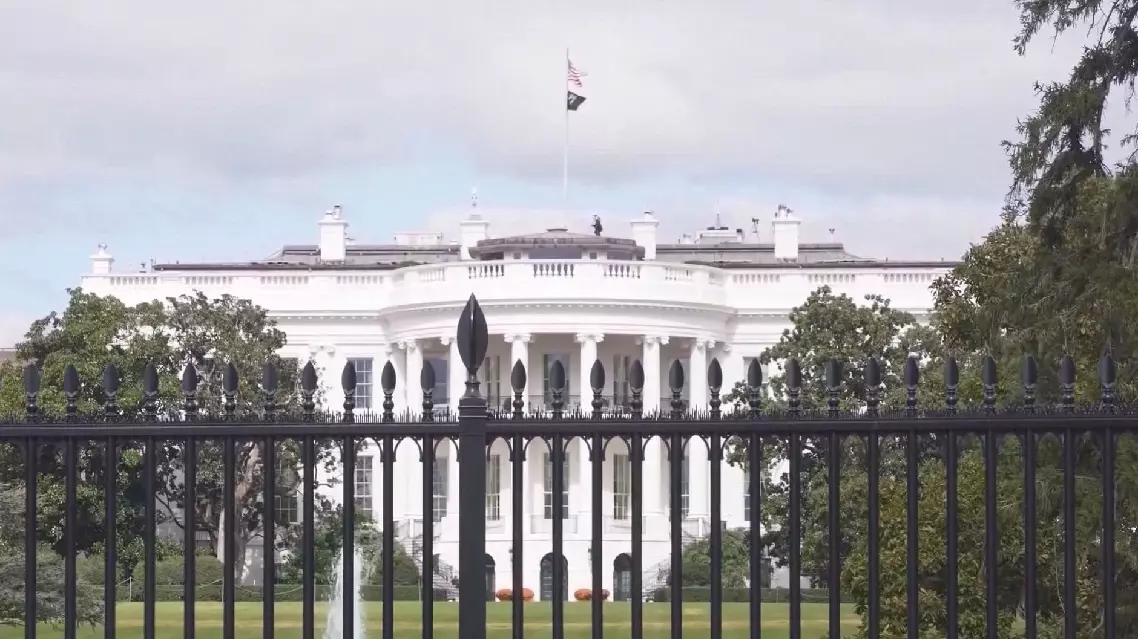
Trump playing "dangerous game" as tariff measures signal decline in U.S. dollar hegemony: economists



